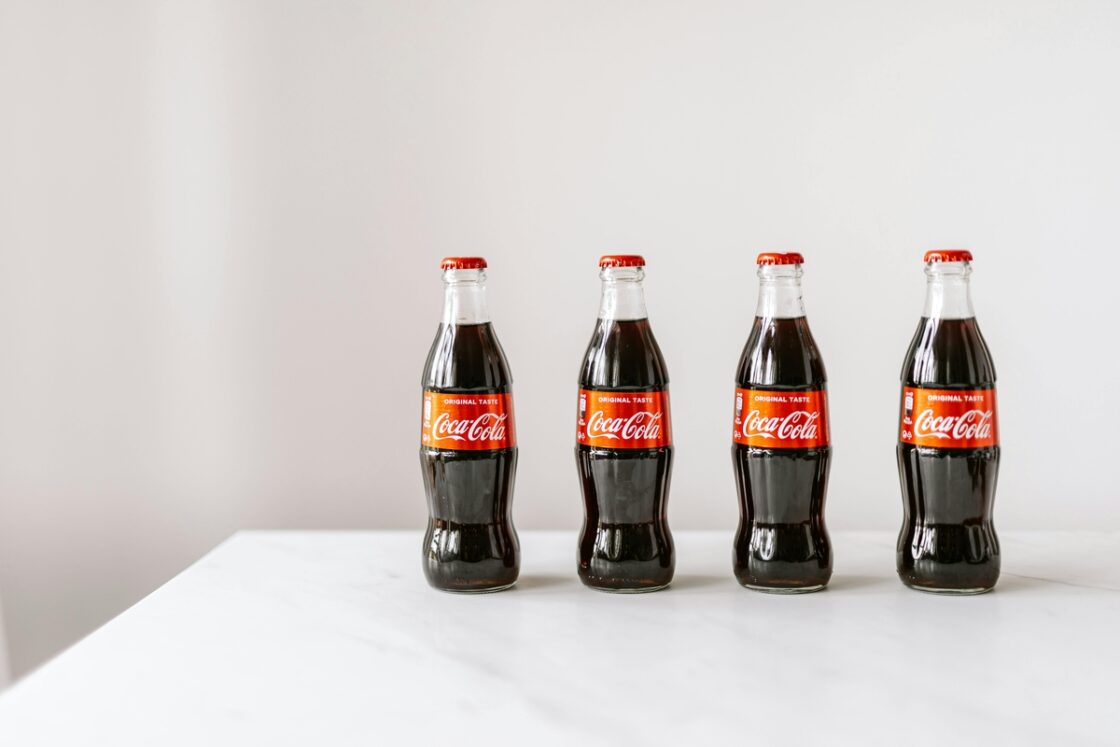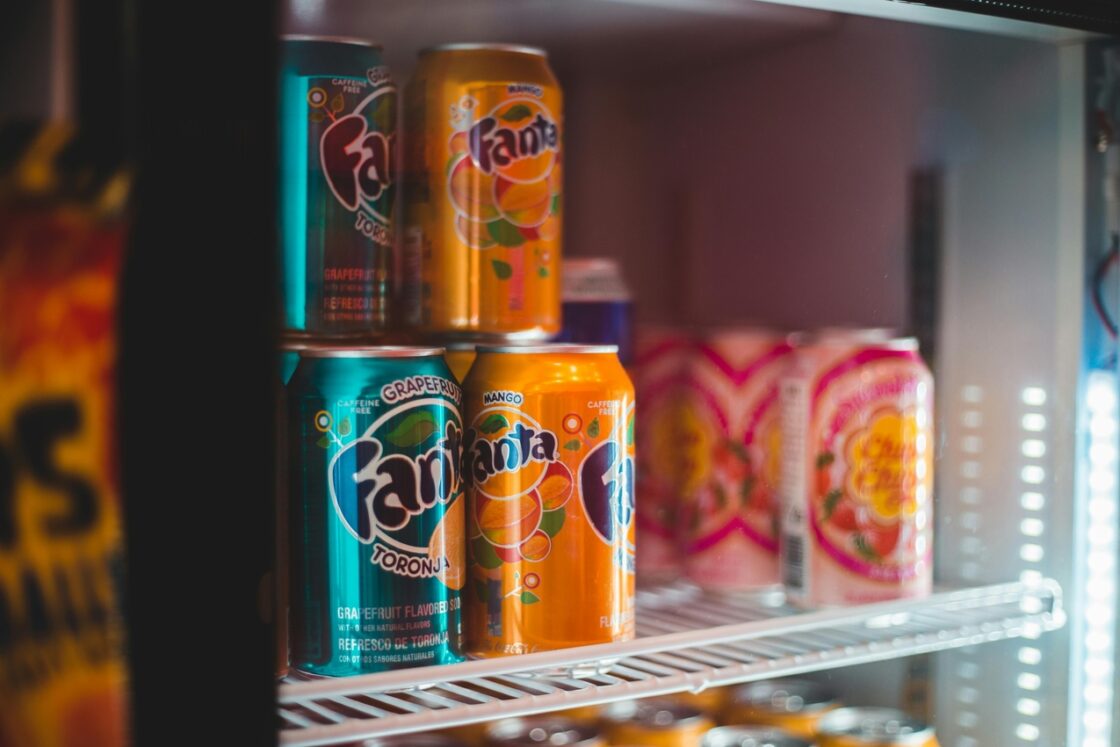
That may of Coke could also be a dying want, in keeping with a brand new research. The analysis hyperlinks the consumption of sugar-sweetened drinks to an elevated threat of mortality from Sort 2 diabetes and heart problems. The research, revealed in early January in Nature Medication, assigns sugar-sweetened drinks the duty for about 340,000 deaths all over the world yearly1. In 2020 alone, sugar-sweetened drinks like soda, fruit punch, or power drinks additionally led to 2.2 million extra instances of sort 2 diabetes and 1.2 million instances of heart problems.
For well being consultants, this well being disaster has hardly elicited the suitable response from regulating our bodies. “Policymakers appropriately reply to tragic deaths, whether or not an airline crash or terrorism assault, however sugary drinks trigger rather more dying and struggling, but these deaths don’t transfer folks in the identical manner as a result of they’re hidden,” mentioned Dariush Mozaffarian, one of many research’s lead authors and the director of the Meals is Medication Institute at Tufts College. “That has to vary.”
What’s So Dangerous About Sugar?
At this level, most of us know the well being dangers of added sugars. In a 2014 research in JAMA Inner Medication, researchers discovered that those that consumed a high-sugar weight-reduction plan had a better threat of dying from coronary heart illness2. A 2016 analysis evaluate in Vitamins confirmed that consumption of added sugars elevated the chance of persistent illnesses like weight problems, heart problems, diabetes, and non-alcoholic fatty liver illness3. Overconsumption of added sugar was even linked to cognitive decline, hormonal adjustments, and a few cancers.
“Policymakers appropriately reply to tragic deaths, whether or not an airline crash or terrorism assault, however sugary drinks trigger rather more dying and struggling, but these deaths don’t transfer folks in the identical manner as a result of they’re hidden.”
Darius Mozaffarian, director of the Meals Is Medication Institute at Tufts College
What Is a Wholesome Quantity of Sugar Per Day?

The scary half? Added sugar is in every single place, and that makes it fairly laborious to keep away from. You’ll discover added sugars in most processed meals, from candy choices like cereal and flavored yogurt to ostensibly savory gadgets like canned soup, cured meat, and bread. Except you’re being hyper-vigilant, it’s laborious to even hold monitor of how a lot added sugar per day you’re consuming.
Consequently, in keeping with the Nationwide Most cancers Institute, American grownup males devour a median of 24 teaspoons of added sugar a day. That’s twice the advisable consumption of the Dietary Tips for People, which recommends limiting added sugars to simply 10% of whole each day energy — about 12 teaspoons of sugar per day for somebody consuming a 2,000-calorie weight-reduction plan. The American Coronary heart Affiliation, in the meantime, recommends reducing that by two thirds, advising that solely 6 % of our each day calorie consumption ought to come from added sugars.
When you concentrate on how a lot sugar is in soda alone, you may perceive why policymakers may need to take motion. Your common 12-ounce can of soda comprises roughly 39 grams of sugar, or the equal of 10 teaspoons. If we’re going by the Dietary Tips for People, that’s 80% of your advisable each day sugar consumption with one drink — and it’s already properly over the American Coronary heart Affiliation’s advisable each day consumption.
Sugar-Sweetened Drinks Are Even Extra Dangerous
The factor is, sugar-sweetened drinks could also be much more insidious than sugar alone. In line with consultants, they’re nearly definitely worse due to the velocity at which they’re consumed and assimilated. With regards to added sugar vs. pure sugar, pure sugars typically include fiber or different vitamins that assist our our bodies course of the sugar appropriately. With none counterbalancing fiber, protein, or vitamins, drinks like soda shock our our bodies with a sudden inflow of sugar.
“They hit your system quick, flooding you with glucose and fructose — far faster than for those who ate entire fruit with fiber,” explains Dr. Joseph Mercola, Board Licensed Household Medication Osteopathic Doctor (DO) and Creator of Your Information to Mobile Health. “That surge places pressure in your liver, boosting fats manufacturing and fueling insulin resistance. It’s the velocity and quantity of sugar in these drinks that’s so problematic, ramping up dangers for metabolic syndrome, coronary heart illness, and diabetes.”
Do Soda Taxes Work?

For many years, governments all over the world have tried to search out the precise resolution to encourage shoppers to keep away from drinks with sugar. So-called soda taxes are excise taxes on sugar-sweetened drinks like iced tea, fruit drinks, and sports activities drinks. A sugary drink tax is at the moment levied in almost a dozen cities throughout the U.S., in addition to the Navajo Nation.
These taxes are controversial, however they do appear to work. In line with a 2019 analysis evaluate within the Annual Overview of Public Well being, proof confirmed an affiliation between larger costs for sugary drinks and decrease physique weight — to not point out simulation fashions that appeared to indicate that tax-induced reductions in consumption of those drinks may straight result in decrease charges of weight problems and improved well being4. Thanks to those taxes — and elevated shopper info relating to the well being dangers of those drinks — consumption within the U.S. peaked in 20005.
Much less Is All the time Higher
Regardless of a lower in consumption of those drinks on the flip of the millennium, we nonetheless have work to do. A 2021 information evaluation from the Facilities for Illness Management and Prevention discovered that one in three American youngsters didn’t eat a each day fruit and almost one in two didn’t eat a each day vegetable, however greater than half had a sugar-sweetened beverage at the least as soon as every week6.
“There’s no universally ‘protected’ degree — much less is all the time higher. Even average consumption [of sugar-sweetened beverages] can have long-term impacts in your liver and metabolism.”
Joseph Mercola, Board Licensed Household Medication Osteopathic Doctor (DO)
And in 2019, a researcher at Northwestern College discovered that regardless of purchases of sugar-sweetened drinks dropping by 46 % following the soda tax in Philadelphia, there was a marked enhance within the sale of such drinks at shops situated zero to 4 miles exterior of the town7. This appears to counsel that coverage alone received’t resolve the issue of sugary drinks — a sugary drink tax must be paired with schooling to encourage folks to take management of their well being, slightly than merely trying elsewhere for his or her sugary repair.
For Mercola, “there’s no universally ‘protected’ degree” of consumption of those drinks. “Much less is all the time higher. Even average consumption can have long-term impacts in your liver and metabolism.”
A Western Drawback Transferring Overseas
Whereas the sugar-sweetened beverage drawback appears to be waning within the U.S., the identical can’t essentially be mentioned for different international locations. The analysis, which analyzed information from the International Dietary Database along with 450 extra worldwide research, centered particularly on sub-Saharan Africa and Latin America — two areas which have seen the largest soar in smooth drink consumption lately.

Intriguingly, the research confirmed that consumption of sugary drinks in sub-Saharan Africa, South Asia, and Latin America was larger among the many well-educated, whereas within the Center East and North Africa, the alternative was true. For Laura Lara-Castor, a dietary epidemiologist on the College of Washington and a lead creator of the Nature research, larger charges of consumption in some areas mirrored the attract of the West. “Consuming these drinks is usually a mark of standing,” she mentioned.
Fortunately, Lara-Castor advised the New York Occasions, public coverage endeavors in Latin America and the Caribbean have already begun to shift consumption patterns7. Brazil, for instance, has launched daring warnings on packages and a brand new sugary drink tax. In Mexico, a ten % tax on sugar-sweetened drinks enacted in 2014 led to a 12 % drop in purchases8.
“Whereas taxes alone received’t repair the whole lot, they do nudge folks away from these drinks,” mentioned Mercola, “which will help reduce the well being issues tied to excessive sugar consumption.”
Sources:
- https://www.nature.com/articles/s41591-024-03345-4
- https://pubmed.ncbi.nlm.nih.gov/24493081/
- https://pmc.ncbi.nlm.nih.gov/articles/PMC5133084/
- https://www.annualreviews.org/content material/journals/10.1146/annurev-publhealth-040218-043816
- https://www.nytimes.com/2025/01/06/well being/sugary-soda-beverages-diabetes-heart-disease.html
- https://www.cdc.gov/mmwr/volumes/72/wr/pdfs/mm7207a1-h.pdf
- https://www.nytimes.com/2025/01/06/well being/sugary-soda-beverages-diabetes-heart-disease.html
- https://net.archive.org/net/20190302090721/https://www.npr.org/sections/thesalt/2015/06/19/415741354/mexicos-sugary-drink-tax-makes-a-dent-in-consumption-study-claims

